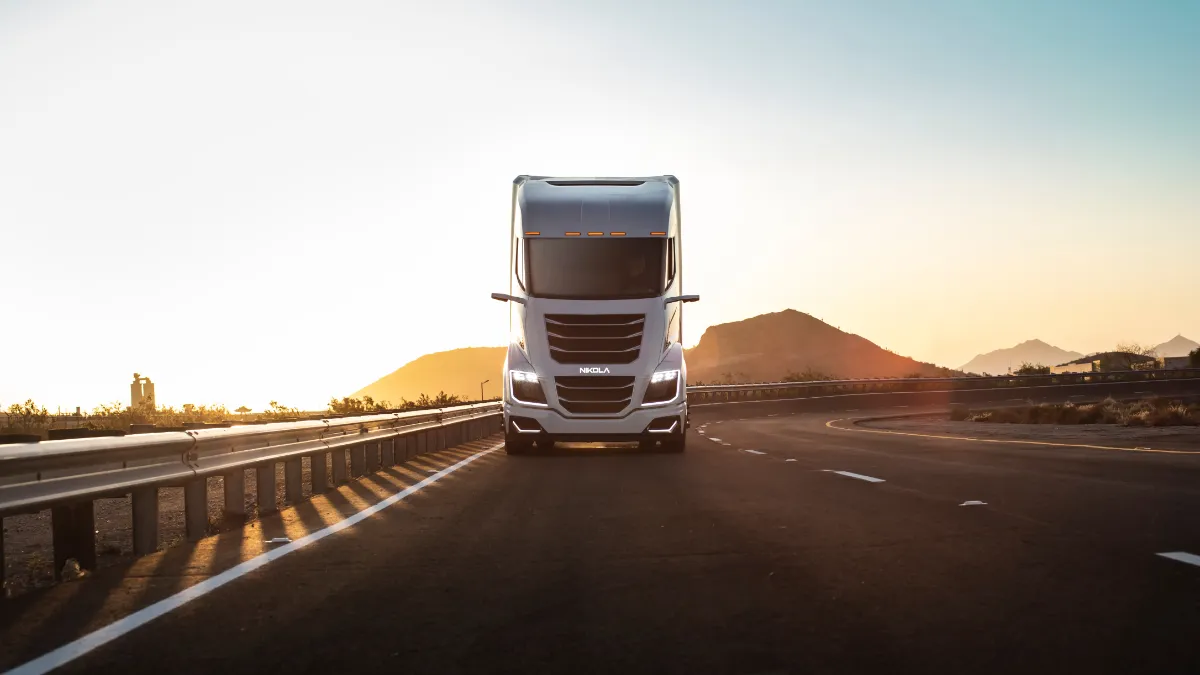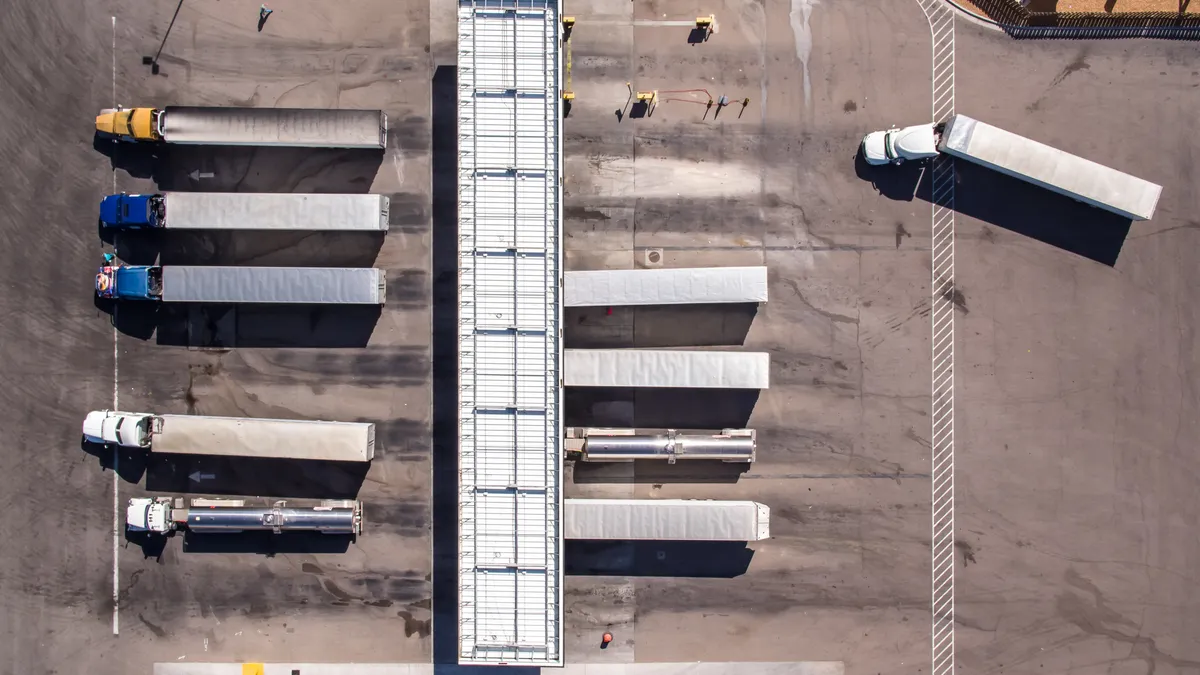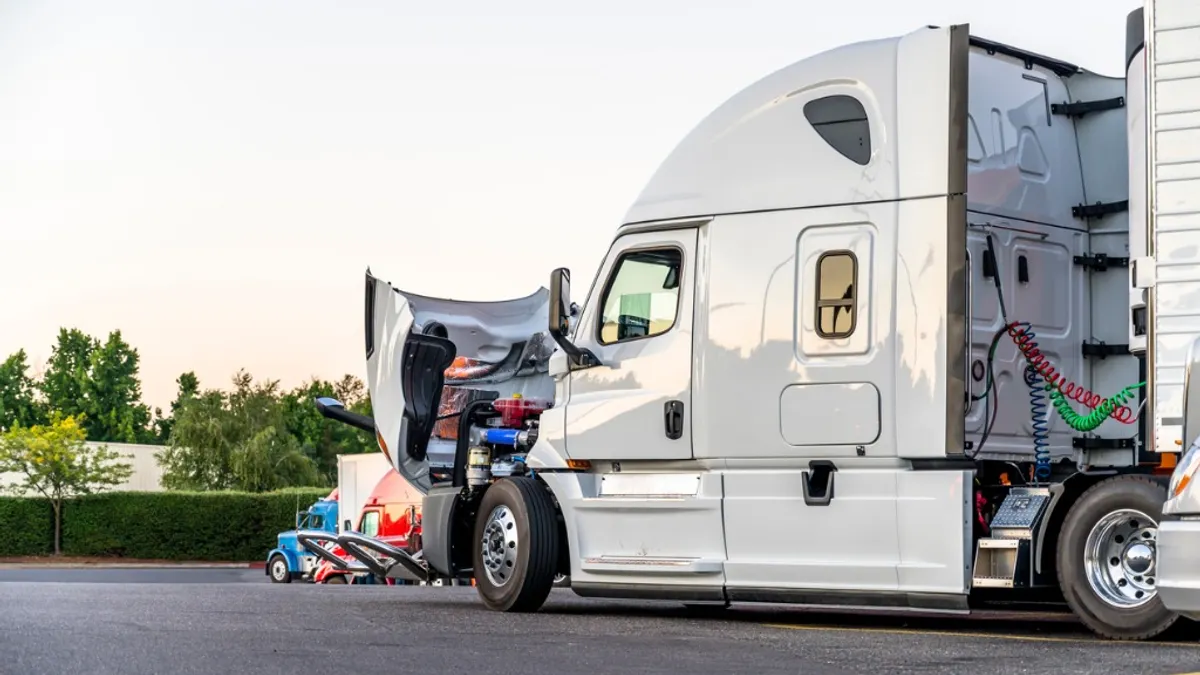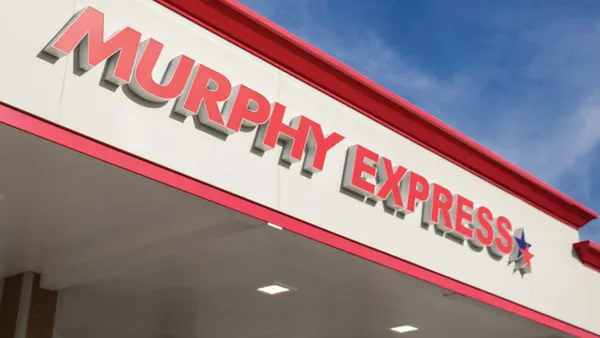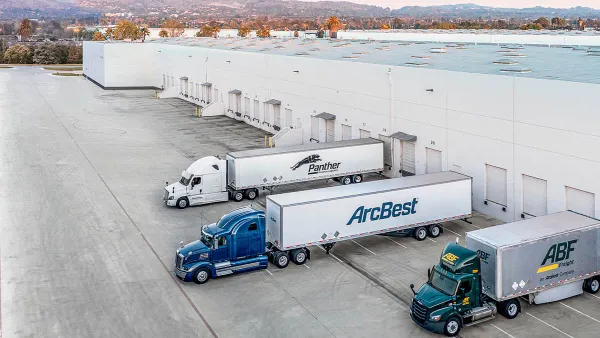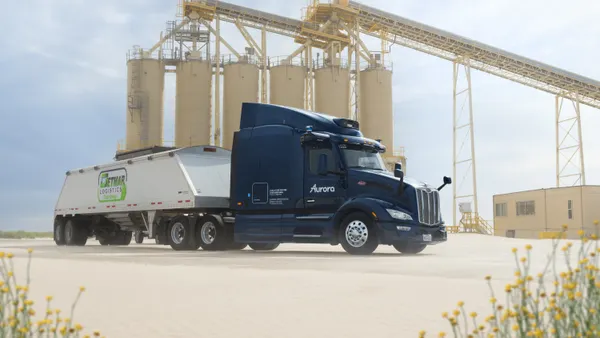Dive Brief:
- Fleets are ready to invest in the next generation of trucks, showing interest in electric vehicles and autonomous vehicles. Last week, Embark Trucks announced it received 14,200 reservations for its OEM-agnostic autonomy technology, while flatbed specialist PGT Trucking signed a letter of intent to lease 100 fuel-cell electric Nikola Tres.
- Embark said the reservations resulted from its Partner Development Program, in which the technology-maker works with carriers to test and improve the operating model. The reservations aren't binding, but they allow fleets to secure priority access to the equipment for five years, starting when Embark plans to launch its software commercially in 2024.
- PGT Trucking's lease order would also include scheduled maintenance and hydrogen fueling stations, according to the announcement. Nikola expects to start delivering the trucks to the fleet in 2023, but the whole agreement is contingent upon a "satisfactory completion" of a truck demonstration program under terms the two parties will agree upon.
Dive Insight:
Makers of AV and EV technology aim to disrupt the trucking industry, but in separate ways. Aside from the small number of trucks designed to be electric and autonomous — Gatik is developing one such offering — fleets are left to make a decision about how they want to invest their resources.
J.B. Hunt Chief Sustainability Officer Craig Harper was asked about EVs during an AV session at the Council of Supply Chain Management Professionals' Edge conference in September.
"Trying to predict how electric and autonomous are going to work together — I think it's way too early," he said.
Harper said many questions remain unanswered, as equipment technologies are in developmental stages. Will battery technology improve and become smaller and lighter? If AVs are best used in long-haul operations, does that mean hydrogen power would be a better fit?
Charlie Jatt, Waymo's head of commercialization for trucking, shared the stage with Harper. Similar to Embark's solution, Waymo's autonomy system is designed to be powertrain-agonistic. The company is starting with diesel platforms because that's what's available and what the majority of fleets use, according to Jatt.
"There's nothing fundamental that says autonomous technology must be with diesel or must be with electric or must be with fuel cells. So, from our side, we're very much trying to follow the lead of the manufacturers and the carriers on the powertrain side of things and hopefully time it right, such that our technology is available with the powertrains that carriers want at any point along the way," Jatt said.
Autonomous EVs may be rare for now, but big fleets don't have to bet on one technology or the other. While J.B. Hunt partners with Waymo, the trucking firm is also partnering with Daimler Trucks North America to pilot its all-electric Class 6/7 Freightliner eM2.
PGT Trucking is also pursuing both technology types. It signed an eight-year agreement to deploy 1,000 Autonomous Relay Convoy systems from platooning-technology company Locomation.
One of Embark's reservation-holders is Knight-Swift, which is also investing resources in EVs. Last month, Kenworth announced the fleet placed a lease order for one battery-electric T680E. Knight Port Services plans to operate the truck in Southern California over the next three years.
Dave Jackson, CEO of Knight-Swift, said in a statement the company has recognized a "strong case for early deployment" of AV technology in particular segments of the network, though he didn't mention which ones.
"Our management team has worked closely with Embark to weigh the unique benefits in speed, cost and sustainability against the operational and technical hurdles of deployment at a lane-level, enabling Knight-Swift to accurately prioritize the network segments where this technology could deliver the most value and place reservations against this plan," Jackson said.
Jackson also noted "operational and technical hurdles of [AV] deployment at a lane-level." EVs face hurdles, as well.
Infrastructure is a critical element for both technologies that still requires major development. AVs need lane markers, while EVs require expansive charging and/or fueling networks.
The regulatory landscape is also lacking, as fleets rely heavily on government credits to pay for greener equipment, and framework is in development to allow the operation of driverless trucks.

